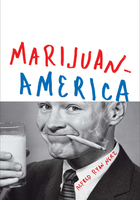But before Coulson was married, many small events happened—small events to all but Philip. To him they were as the sun and moon. The days when he went up to Haytersbank and Sylvia spoke to him, the days when he went up and she had apparently no heart to speak to any one, but left the room as soon as he came, or never entered it at all, although she must have known that he was there—these were his alternations from happiness to sorrow.
From her parents he always had a welcome. Oppressed by their daughter's depression of spirits, they hailed the coming of any visitor as a change for her as well as for themselves. The former intimacy with the Corneys was in abeyance for all parties, owing to Bessy Corney's out-spoken grief for the loss of her cousin, as if she had had reason to look upon him as her lover, whereas Sylvia's parents felt this as a slur upon their daughter's cause of grief. But although at this time the members of the two families ceased to seek after each other's society, nothing was said. The thread of friendship might be joined afresh at any time, only just now it was broken; and Philip was glad of it. Before going to Haytersbank he sought each time for some little present with which to make his coming welcome. And now he wished even more than ever that Sylvia had cared for learning; if she had he could have taken her many a pretty ballad, or story-book, such as were then in vogue. He did try her with the translation of the?Sorrows of Werther, so popular at the time that it had a place in all pedlars' baskets, with Law's?Serious Call, the?Pilgrim's Progress, Klopstock'sMessiah, and?Paradise Lost. But she could not read it for herself; and after turning the leaves languidly over, and smiling a little at the picture of Charlotte cutting bread and butter in a left-handed manner, she put it aside on the shelf by the?Complete Farrier; and there Philip saw it, upside down and untouched, the next time he came to the farm.
Many a time during that summer did he turn to the few verses in Genesis in which Jacob's twice seven years' service for Rachel is related, and try and take fresh heart from the reward which came to the patriarch's constancy at last. After trying books, nosegays, small presents of pretty articles of dress, such as suited the notions of those days, and finding them all received with the same languid gratitude, he set himself to endeavour to please her in some other way. It was time that he should change his tactics; for the girl was becoming weary of the necessity for thanking him, every time he came, for some little favour or other. She wished he would let her alone and not watch her continually with such sad eyes. Her father and mother hailed her first signs of impatient petulance towards him as a return to the old state of things before Kinraid had come to disturb the tenour of their lives; for even Daniel had turned against the specksioneer, irritated by the Corneys' loud moans over the loss of the man to whom their daughter said that she was attached. If Daniel wished for him to be alive again, it was mainly that the Corneys might be convinced that his last visit to the neighbourhood of Monkshaven was for the sake of the pale and silent Sylvia, and not for that of Bessy, who complained of Kinraid's untimely death rather as if by it she had been cheated of a husband than for any overwhelming personal love towards the deceased.
'If he were after her he were a big black scoundrel, that's what he were; and a wish he were alive again to be hung. But a dunnot believe it; them Corney lasses were allays a-talkin' an' a-thinking on sweethearts, and niver a man crossed t' threshold but they tried him on as a husband. An' their mother were no better: Kinraid has spoken civil to Bessy as became a lad to a lass, and she makes an ado over him as if they'd been to church together not a week sin'.'
'I dunnot uphold t' Corneys; but Molly Corney—as is Molly Brunton now—used to speak on this dead man to our Sylvie as if he were her sweetheart in old days. Now there's no smoke without fire, and I'm thinking it's likely enough he were one of them fellows as is always after some lass or another, and, as often as not, two or three at a time. Now look at Philip, what a different one he is! He's niver thought on a woman but our Sylvie, I'll be bound. I wish he wern't so old-fashioned and faint-hearted.'
'Ay! and t' shop's doin' a vast o' business, I've heard say. He's a deal better company, too, 'n or he used to be. He'd a way o' preaching wi' him as a couldn't abide; but now he tak's his glass, an' holds his tongue, leavin' room for wiser men to say their say.'
Such was a conjugal colloquy about this time. Philip was gaining ground with Daniel, and that was something towards winning Sylvia's heart; for she was unaware of her father's change of feeling towards Kinraid, and took all his tenderness towards herself as if they were marks of his regard for her lost lover and his sympathy in her loss, instead of which he was rather feeling as if it might be a good thing after all that the fickle-hearted sailor was dead and drowned. In fact, Daniel was very like a child in all the parts of his character. He was strongly affected by whatever was present, and apt to forget the absent. He acted on impulse, and too often had reason to be sorry for it; but he hated his sorrow too much to let it teach him wisdom for the future. With all his many faults, however, he had something in him which made him be dearly loved, both by the daughter whom he indulged, and the wife who was in fact superior to him, but whom he imagined that he ruled with a wise and absolute sway.
Love to Sylvia gave Philip tact. He seemed to find out that to please the women of the household he must pay all possible attention to the man; and though he cared little in comparison for Daniel, yet this autumn he was continually thinking of how he could please him. When he had said or done anything to gratify or amuse her father, Sylvia smiled and was kind. Whatever he did was right with his aunt; but even she was unusually glad when her husband was pleased. Still his progress was slow towards his object; and often he sighed himself to sleep with the words, 'seven years, and maybe seven years more'. Then in his dreams he saw Kinraid again, sometimes struggling, sometimes sailing towards land, the only one on board a swift advancing ship, alone on deck, stern and avenging; till Philip awoke in remorseful terror.
Such and similar dreams returned with the greater frequency when, in the November of that year, the coast between Hartlepool and Monkshaven was overshadowed by the presence of guard-ships, driven south from their station at North Shields by the resolution which the sailors of that port had entered into to resist the press-gang, and the energy with which they had begun to carry out their determination. For on a certain Tuesday evening yet remembered by old inhabitants of North Shields, the sailors in the merchant service met together and overpowered the press-gang, dismissing them from the town with the highest contempt, and with their jackets reversed. A numerous mob went with them to Chirton Bar; gave them three cheers at parting, but vowed to tear them limb from limb should they seek to re-enter North Shields. But a few days afterwards some fresh cause of irritation arose, and five hundred sailors, armed with such swords and pistols as they could collect, paraded through the town in the most riotous manner, and at last attempted to seize the tender Eleanor, on some pretext of the ill-treatment of the impressed men aboard. This endeavour failed, however, owing to the energetic conduct of the officers in command. Next day this body of sailors set off for Newcastle; but learning, before they reached the town, that there was a strong military and civil force prepared to receive them there, they dispersed for the time; but not before the good citizens had received a great fright, the drums of the North Yorkshire militia beating to arms, and the terrified people rushing out into the streets to learn the reason of the alarm, and some of them seeing the militia, under the command of the Earl of Fauconberg, marching from the guard-house adjoining New Gate to the house of rendezvous for impressed seamen in the Broad Chase.
But a few weeks after, the impressment service took their revenge for the insults they had been subjected to in North Shields. In the dead of night a cordon was formed round that town by a regiment stationed at Tynemouth barracks; the press-gangs belonging to armed vessels lying off Shields harbour were let loose; no one within the circle could escape, and upwards of two hundred and fifty men, sailors, mechanics, labourers of every description, were forced on board the armed ships. With that prize they set sail, and wisely left the place, where deep passionate vengeance was sworn against them. Not all the dread of an invasion by the French could reconcile the people of these coasts to the necessity of impressment. Fear and confusion prevailed after this to within many miles of the sea-shore. A Yorkshire gentleman of rank said that his labourers dispersed like a covey of birds, because a press-gang was reported to have established itself so far inland as Tadcaster; and they only returned to work on the assurance from the steward of his master's protection, but even then begged leave to sleep on straw in the stables or outhouses belonging to their landlord, not daring to sleep at their own homes. No fish was caught, for the fishermen dared not venture out to sea; the markets were deserted, as the press-gangs might come down on any gathering of men; prices were raised, and many were impoverished; many others ruined. For in the great struggle in which England was then involved, the navy was esteemed her safeguard; and men must be had at any price of money, or suffering, or of injustice. Landsmen were kidnapped and taken to London; there, in too many instances, to be discharged without redress and penniless, because they were discovered to be useless for the purpose for which they had been taken.
Autumn brought back the whaling-ships. But the period of their return was full of gloomy anxiety, instead of its being the annual time of rejoicing and feasting; of gladdened households, where brave steady husbands or sons returned; of unlimited and reckless expenditure, and boisterous joviality among those who thought that they had earned unbounded licence on shore by their six months of compelled abstinence. In other years this had been the time for new and handsome winter clothing; for cheerful if humble hospitality; for the shopkeepers to display their gayest and best; for the public-houses to be crowded; for the streets to be full of blue jackets, rolling along with merry words and open hearts. In other years the boiling-houses had been full of active workers, the staithes crowded with barrels, the ship-carpenters' yards thronged with seamen and captains; now a few men, tempted by high wages, went stealthily by back lanes to their work, clustering together, with sinister looks, glancing round corners, and fearful of every approaching footstep, as if they were going on some unlawful business, instead of true honest work. Most of them kept their whaling-knives about them ready for bloody defence if they were attacked. The shops were almost deserted; there was no unnecessary expenditure by the men; they dared not venture out to buy lavish presents for the wife or sweetheart or little children. The public-houses kept scouts on the look-out; while fierce men drank and swore deep oaths of vengeance in the bar—men who did not maunder in their cups, nor grow foolishly merry, but in whom liquor called forth all the desperate, bad passions of human nature.
Indeed, all along the coast of Yorkshire, it seemed as if a blight hung over the land and the people. Men dodged about their daily business with hatred and suspicion in their eyes, and many a curse went over the sea to the three fatal ships lying motionless at anchor three miles off Monkshaven. When first Philip had heard in his shop that these three men-of-war might be seen lying fell and still on the gray horizon, his heart sank, and he scarcely dared to ask their names. For if one should be the?Alcestis; if Kinraid should send word to Sylvia; if he should say he was living, and loving, and faithful; if it should come to pass that the fact of the undelivered message sent by her lover through Philip should reach Sylvia's ears: what would be the position of the latter, not merely in her love—that, of course, would be hopeless—but in her esteem? All sophistry vanished; the fear of detection awakened Philip to a sense of guilt; and, besides, he found out, that, in spite of all idle talk and careless slander, he could not help believing that Kinraid was in terrible earnest when he uttered those passionate words, and entreated that they might be borne to Sylvia. Some instinct told Philip that if the specksioneer had only flirted with too many, yet that for Sylvia Robson his love was true and vehement. Then Philip tried to convince himself that, from all that was said of his previous character, Kinraid was not capable of an enduring constant attachment; and with such poor opiate to his conscience as he could obtain from this notion Philip was obliged to remain content, until, a day or two after the first intelligence of the presence of those three ships, he learned, with some trouble and pains, that their names were the?Megoera, the?Bellerophon, and the?Hanover.
Then he began to perceive how unlikely it was that the?Alcestis?should have been lingering on this shore all these many months. She was, doubtless, gone far away by this time; she had, probably, joined the fleet on the war station. Who could tell what had become of her and her crew? she might have been in battle before now, and if so—-
So his previous fancies shrank to nothing, rebuked for their improbability, and with them vanished his self-reproach. Yet there were times when the popular attention seemed totally absorbed by the dread of the press-gang; when no other subject was talked about—hardly, in fact, thought about. At such flows of panic, Philip had his own private fears lest a flash of light should come upon Sylvia, and she should suddenly see that Kinraid's absence might be accounted for in another way besides death. But when he reasoned, this seemed unlikely. No man-of-war had been seen off the coast, or, if seen, had never been spoken about, at the time of Kinraid's disappearance. If he had vanished this winter time, every one would have been convinced that the press-gang had seized upon him. Philip had never heard any one breathe the dreaded name of the?Alcestis. Besides, he went on to think, at the farm they are out of hearing of this one great weary subject of talk. But it was not so, as he became convinced one evening. His aunt caught him a little aside while Sylvia was in the dairy, and her husband talking in the shippen with Kester.
'For good's sake, Philip, dunnot thee bring us talk about t' press-gang. It's a thing as has got hold on my measter, till thou'd think him possessed. He's speaking perpetual on it i' such a way, that thou'd think he were itching to kill 'em a' afore he tasted bread again. He really trembles wi' rage and passion; an' a' night it's just as bad. He starts up i' his sleep, swearing and cursing at 'em, till I'm sometimes afeard he'll mak' an end o' me by mistake. And what mun he do last night but open out on Charley Kinraid, and tell Sylvie he thought m'appen t' gang had got hold on him. It might make her cry a' her saut tears o'er again.'
Philip spoke, by no wish of his own, but as if compelled to speak.
'An' who knows but what it's true?'
The instant these words had come out of his lips he could have bitten his tongue off. And yet afterwards it was a sort of balm to his conscience that he had so spoken.
'What nonsense, Philip!' said his aunt; 'why, these fearsome ships were far out o' sight when he went away, good go wi' him, and Sylvie just getting o'er her trouble so nicely, and even my master went on for to say if they'd getten hold on him, he were not a chap to stay wi' 'em; he'd gi'en proofs on his hatred to 'em, time on. He either ha' made off—an' then sure enough we should ha' heerd on him somehow—them Corneys is full on him still and they've a deal to wi' his folk beyond Newcassel—or, as my master says, he were just t' chap to hang or drown hissel, sooner nor do aught against his will.'
'What did Sylvie say?' asked Philip, in a hoarse low voice.
'Say? why, a' she could say was to burst out crying, and after a bit, she just repeated her feyther's words, and said anyhow he was dead, for he'd niver live to go to sea wi' a press-gang. She knowed him too well for that. Thou sees she thinks a deal on him for a spirited chap, as can do what he will. I belie' me she first began to think on him time o' t' fight aboard th'?Good Fortune, when Darley were killed, and he would seem tame-like to her if he couldn't conquer press-gangs, and men-o'-war. She's sooner think on him drowned, as she's ne'er to see him again.'
'It's best so,' said Philip, and then, to calm his unusually excited aunt, he promised to avoid the subject of the press-gang as much as possible.
But it was a promise very difficult of performance, for Daniel Robson was, as his wife said, like one possessed. He could hardly think of anything else, though he himself was occasionally weary of the same constantly recurring idea, and would fain have banished it from his mind. He was too old a man to be likely to be taken by them; he had no son to become their victim; but the terror of them, which he had braved and defied in his youth, seemed to come back and take possession of him in his age; and with the terror came impatient hatred. Since his wife's illness the previous winter he had been a more sober man until now. He was never exactly drunk, for he had a strong, well-seasoned head; but the craving to hear the last news of the actions of the press-gang drew him into Monkshaven nearly every day at this dead agricultural season of the year; and a public-house is generally the focus from which gossip radiates; and probably the amount of drink thus consumed weakened Robson's power over his mind, and caused the concentration of thought on one subject. This may be a physiological explanation of what afterwards was spoken of as a supernatural kind of possession, leading him to his doom.















